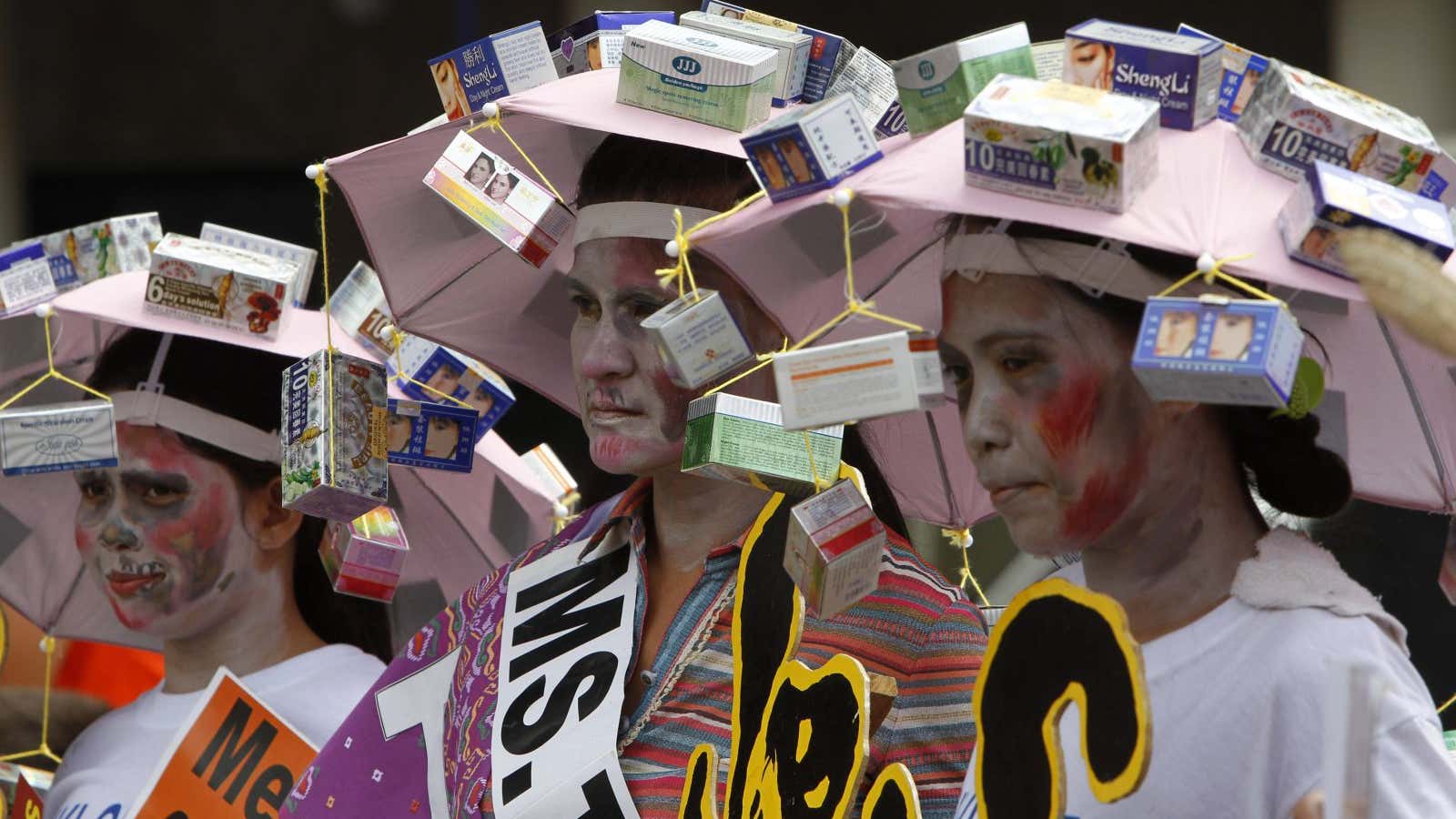Come August, Ghana will begin implementing a new ban on hydroquinone, the primary chemical in many skin-bleaching products. The ban is the latest salvo in a backlash against skin-bleaching that pits longstanding racial stereotypes against a growing beauty industry.
Ghana is one of just three African countries—along with Cote d’Ivoire and South Africa—to regulate skin-lightening products, and its Food and Drugs Authority (FDA) says the ban is a matter of public safety. Hydroquinone is widely considered a potential carcinogen and products containing it are already banned or restricted in Japan, Australia, and the European Union (though the efficacy of those bans is up for debate).
There is abundant historical precedent for using chemical products to achieve a lighter skin tone, but the practice has in recent years seeded a booming—and controversial—industry. In 2012, India alone used 258 tons of skin-lightening cream (such creams have recently caught on with men there). In Lagos, Nigeria, one survey found that up to 77% of all residents use skin-lightening creams. Demand for such products is currently being driven by the Asia-Pacific market—led, interestingly, by Japan—but they are also popular in parts of Africa, the Middle East, the Caribbean, and Latin America. A 2009 report from Global Industry Analysts declared skin-lightening a $10 billion industry; as of last year, GIA was projecting that number would hit $23 billion by 2020.
While skin-lightening has some negative physical side effects—cancer aside, bleaching creams can cause rashes, itchy and flaky skin, and permanent scarring—the hydroquinone backlash has deeper roots. Skin-lightening is seen as a direct byproduct of colorism, a form of discrimination that deems lighter skin “better” than darker skin. Historically, colorism has led to disparities in everything from social treatment to employment, and has even been documented as a factor in US prison sentencing.
Perhaps the most infamous example of this is the “paper bag test,” a practice in American slavery whereby slave owners would compare slaves’ skin color to a paper bag—lighter-skinned slaves worked indoors while darker slaves were sent to the fields. More recently, 2011 documentary Dark Girls highlighted the lingering presence of colorism in the media, and its effect on black women’s sense of self-worth. Outside the US, skin tone continues to be associated with class in many regions, particularly formerly colonized spaces like India and the Philippines.
So far, the pushback against skin-lightening has been slow, in part because such products are still big business. (In the US, Unilever manufactures Fair & Lovely, a skin-bleaching cream with wide distribution in Southeast Asia). Celebrities like Cameroonian-Nigerian singer Dencia have been lambasted for pushing skin-lightening products, and even Snapchat has come under fire for using retouching filters that appear to make people whiter. But actual regulation has been slow.
This means Ghana, a country of 26 million, could be setting an important example, at least symbolically. “From August 2016, all products containing hydroquinone will not be allowed in the country,” FDA spokesman James Lartey told Starr FM last year. “From 2016, the acceptance for skin-lightening products is going to be zero.”
